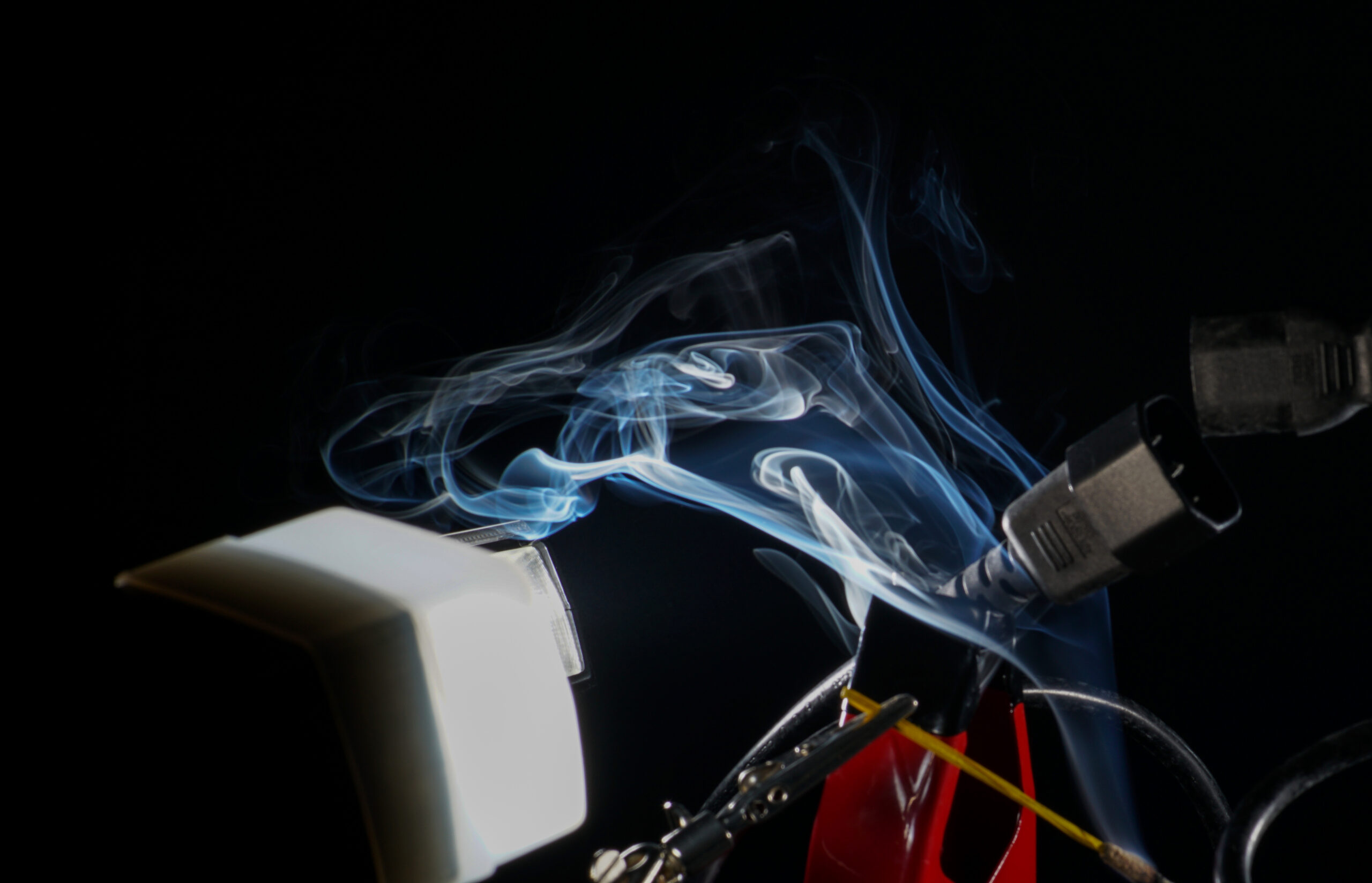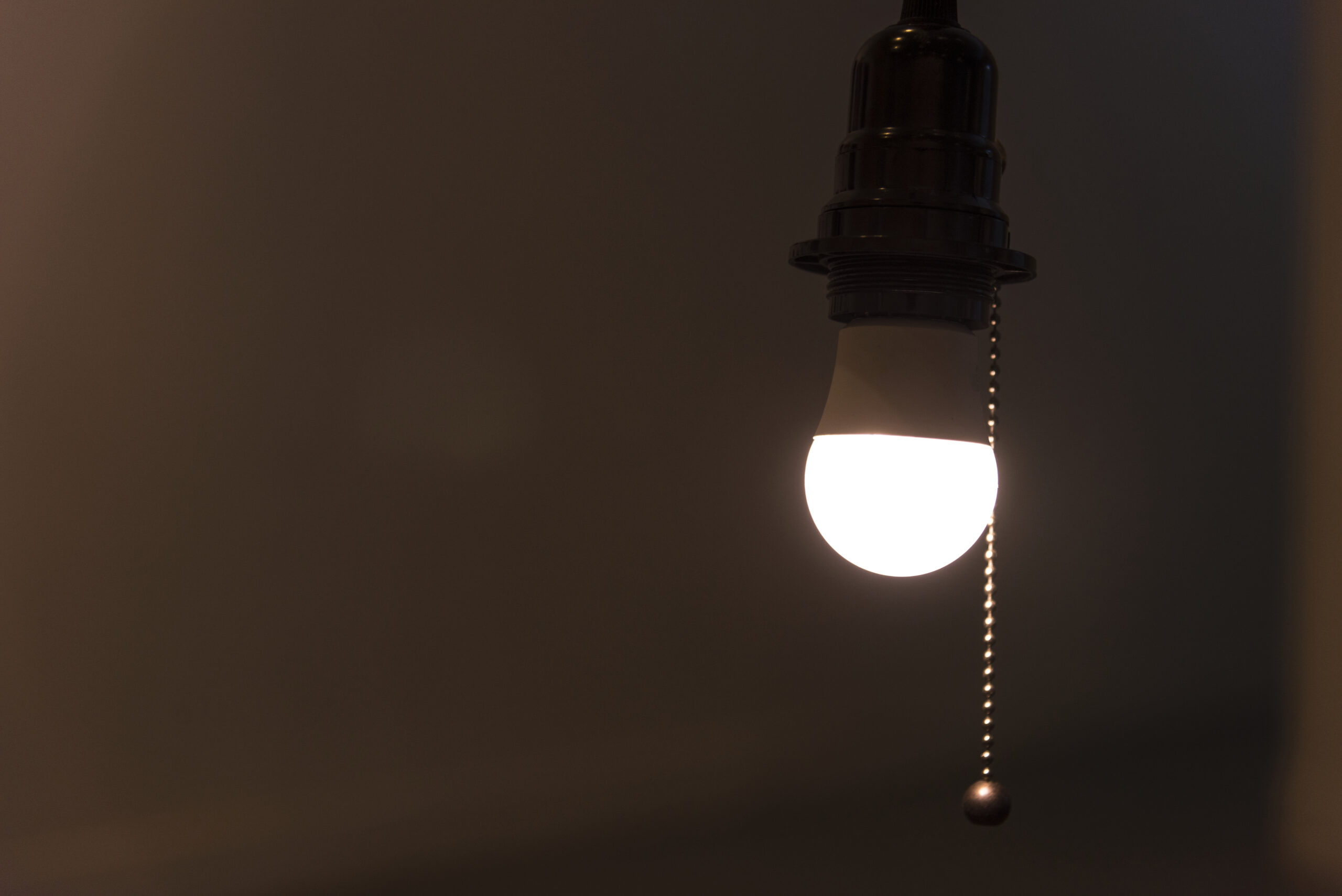A couple in East Boca Raton recently contacted us after noticing a strange burning smell in their guest bedroom. They thought it was coming from the air conditioner and decided to ignore it. Hours later, they spotted smoke seeping from the outlet. That quick call to us likely prevented a fire. We discovered melted wires behind the wall, one faulty circuit away from disaster. This is one of many examples we’ve seen in Boca homes and businesses where early warning signs were dismissed—until things nearly turned tragic.
Electrical emergencies don’t always begin with big sparks or full blackouts. In fact, many start subtly—with flickering lights, odd sounds, or a single tripping breaker. According to the National Fire Protection Association (NFPA), home electrical fires account for over 50,000 incidents annually in the U.S., causing more than 1,500 injuries and nearly $1.5 billion in property damage. The truth is, many of these could have been prevented if the warning signs were taken seriously.
Whether you own a home in Boca Winds or manage a business near Federal Highway, it’s critical to understand what qualifies as an electrical emergency. In this guide, we’ll go over five risky red flags, explain why they’re dangerous, and help you decide when to act fast to protect your home, business, and loved ones.
What Counts as an Electrical Emergency?
Before diving into specific warning signs, let’s take a moment to define what actually makes something an electrical emergency. Many property owners get confused—should you wait until business hours or call right away? Should you handle it yourself or leave it to a professional?
Electrical emergencies are any sudden issues with your electrical system that create a potential risk to your safety, property, or electrical infrastructure. They require urgent action from a licensed electrician—not a delay, and definitely not DIY.
Common Examples of Electrical Emergencies
- Smoke, sparks, or visible firefrom outlets, wires, or electrical panels
- Power lossthat affects only your home or business—not your neighborhood
- Unexplained electric shockswhen touching plugs or appliances
- Buzzing or crackling soundsfrom walls, switches, or breaker boxes
- Burning plastic or fishy odorsfrom electrical equipment
- Consistently tripping circuit breakerswithout any clear reason
If it poses danger or involves damage to wiring, it’s an emergency.
Sign #1: Burning Smell or Smoke From Outlets

When your nose picks up a faint scent of burning plastic, it might seem harmless—at first. But don’t overlook it. This is one of the most serious early signs of an electrical fire starting within your walls.
Why This Is Dangerous
That smell often comes from overheating wires, which may be melting insulation or arcing (jumping electricity between faulty connections). Over time, this heat can cause wood framing or drywall to catch fire. It doesn’t take much—especially in older homes in neighborhoods like Boca Square or Paradise Palms where wiring may be decades old.
What to Do
- Shut off power to the affected area at the main breaker panel (only if it’s safe and dry)
- Do not plug anything into that outlet or attempt to remove a plug that’s stuck
- Open windows to ventilate, but do not delay—call a licensed electrician right away
Even if the smell goes away, the damage could still be lurking behind your walls.
Sign #2: Circuit Breakers Tripping Repeatedly
If your circuit breaker trips once or twice, that’s not unusual. But if it keeps happening, or you reset it and it trips again immediately, something more serious may be going on behind the scenes.
Why This Is a Red Flag
Your circuit breaker is a safety device. Its job is to cut power when your system is overloaded or shorted. When it trips repeatedly, it could be due to:
- Overloaded circuits from too many high-wattage devices
- Short circuits where wires are touching or damaged
- Ground faults—especially in bathrooms or kitchens
- A faulty breaker or outdated electrical panel
These issues can quickly escalate to overheating, arcing, or even electrical fires.
What to Do
- Unplug any large appliances or electronics connected to the affected area
- Avoid flipping the breaker back on multiple times
- Contact a certified electrician to diagnose the root cause and ensure your home is safe
We often see this issue in larger homes with older panels that weren’t built for today’s appliance-heavy lifestyles.
Sign #3: Buzzing or Popping Sounds

If you ever hear buzzing, crackling, or popping from light fixtures, outlets, or behind the wall, it’s time to act. Electricity should always run silently—any noise could mean something is failing.
Why This Is a Problem
Buzzing or popping usually comes from loose wiring, frayed insulation, or damaged components. It could also mean that the current is arcing—jumping from one metal point to another—which generates excessive heat and sparks. This often happens silently at first, then grows louder as the problem worsens.
This is especially common in commercial spaces with older ballasts or poorly maintained systems.
What to Do
- Shut off power to the area
- Avoid touching light switches or electrical panels making noise
- Contact a licensed electrician immediately for a detailed inspection
Don’t try to ignore these sounds by turning up the TV—this is your system warning you of potential disaster.
Sign #4: Electric Shocks From Devices or Outlets
Even a small tingle or mild shock when touching an outlet or appliance is not normal. This is your body completing an unintended circuit—and it could become dangerous quickly.
Why This Is Serious
Minor shocks can be caused by faulty grounding, damaged cords, or reversed polarity in the wiring. More severe issues could involve leaking current, which could harm you, damage electronics, or even spark fires. For businesses, this is a major liability—especially in wet areas like salons, kitchens, or gyms.
What to Do
- Stop using the affected appliance or outlet immediately
- Unplug the device if it’s safe to do so
- Have a professional check the circuit, outlet, and grounding of your system
This is one of the most common issues that gets ignored—until someone gets seriously hurt.
Sign #5: Power Loss in Only One Area of Your Home or Building

Losing power to just one room or section of your home might seem minor, but it often points to a hidden electrical problem. And it’s often more serious than you think.
Why This Could Be an Emergency
Partial power loss can result from:
- Damaged or overloaded circuits
- Faulty breakers or wiring behind walls
- Heat damage or corrosion in electrical panels
- Rodent damage in attics or basements
These issues may not trigger a full outage but can still spark fires or damage sensitive electronics.
What to Do
- Check the circuit breaker and note any tripped switches
- Don’t overload working outlets with extension cords to “make up for it”
- Schedule a professional inspection before restoring full power to the area
Businesses especially can’t afford to ignore this—just one outage can interrupt operations and trigger expensive equipment failure.
Residential vs. Commercial Emergencies in Boca Raton
Electrical emergencies don’t just happen in homes. Commercial buildings—offices, restaurants, salons, medical facilities—have more equipment, more wiring, and often higher stakes.
Residential Electrical Risks:
- Older homes with aluminum or ungrounded wiring
- Overloaded outlets from modern electronics
- DIY work or improperly installed ceiling fans, lights, or panels
Commercial Electrical Risks:
- Heavy-duty equipment pulling too much power
- Failure of emergency lighting or alarm systems
- Code violations from quick fixes or unlicensed labor
In both settings, it’s better to act early than wait for the situation to escalate.
How to Stay Ahead of Electrical Emergencies
Preventing emergencies starts with routine maintenance, system upgrades, and awareness. Here’s how homeowners and business owners in Boca Raton can stay ahead of potential trouble:
- Get a professional inspection every 3–5 years or annually for commercial buildings
- Install whole-house surge protection
- Upgrade old breaker panels (especially if yours is from the 80s or 90s)
- Replace two-prong ungrounded outlets with modern GFCIs
- Train staff or family members to recognize early signs of electrical failure
Proactive care is cheaper—and much safer—than emergency repairs.
How Can Boca Electrical Service Help You?
At Boca Electrical Service, we provide fast, reliable, and professional electrical help for both residential and commercial emergencies. When you call us, you’re getting a team of licensed, insured, and highly trained electricians who know exactly what qualifies as an electrical emergency—and how to fix it right the first time.
We proudly serve all areas of Boca Raton, from beachfront condos to busy commercial plazas.
Here’s what you can expect:
- 24/7 Emergency Response
- Residential & Commercial Electrical Repairs
- Code-Compliant Work and Safety Inspections
- Fair, Upfront Pricing with No Surprise Fees
- Friendly, Local Experts Who Care
Visit us at:123 NW 13th St Suite 214-09, Boca Raton, FL 33432
Call us today:(561) 320-8539
Don’t ignore the warning signs. If you’re unsure, call Boca Electrical Service—we’ll help you spot the problem before it becomes a costly emergency.
Frequently Asked Questions
Can I wait until morning to call an electrician if my power is partially out?
If only one area has lost power and there’s no sign of fire or danger, you can wait—but it’s still smart to turn off affected circuits and avoid using outlets until a professional checks it.
Do I need to replace all my wiring if I have frequent electrical issues?
Not always—frequent issues may only require replacing specific faulty circuits or upgrading your panel, not rewiring the entire property.
How can I tell if my breaker panel is outdated?
If your panel is over 25 years old, uses fuses instead of breakers, or brands like Federal Pacific or Zinsco, it may be unsafe and should be evaluated by a licensed electrician.
Are flickering lights always a sign of an emergency?
Not always—but if the flickering is frequent, affects multiple rooms, or is accompanied by buzzing or dimming, it should be inspected right away.